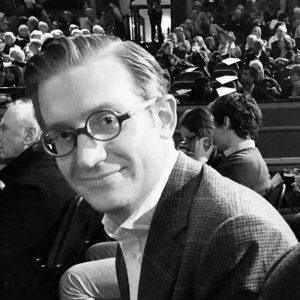Due to the ongoing pandemic, The Aristotelian Society will be holding its meetings online via Zoom until further notice.
To join the presentation and discussion period for each talk you will need to follow this link.
If you have any problems or concerns about the software, please contact mail@aristoteliansociety.org.uk. You do not need to have a Zoom account or to download anything in advance but we have found that the software works better on Google Chrome or Firefox, rather than other browsers. Please log into the “waiting room” at least 5 minutes in advance of each talk.
Aesthetic beautification is a familiar artistic phenomenon: Even as they face death, heroes and heroines in operas still sing glorious music. Characters in Shakespearean tragedies still deliver beautifully eloquent speeches in the throes of despair. Even depicting suffering and horror, paintings can still remain a transfixing delight for the eyes. In such cases, the work of art represents or expresses something we would, in ordinary life, attribute a negative valence (suffering, horror, death, and the like), but it does so beautifully. Doubtless there is not a single explanation for what transpires in art of this sort or in our experience of it. With some aesthetically beautified art, its foremost goal might be giving aesthetic pleasure, and the beauty of the aesthetic form, even when depicting horrors, is in the service of this primary aim. In other art, the beautification might seek to be jarring and thought-provoking, highlighting a disconnect between the aesthetic frame and what is portrayed. These routes explain much of aesthetic beautification. But I am particularly interested in considering another more specific response still: finding ourselves somehow consoled by the beautification. I begin with some reflections on aesthetic beautification in general, and then turn to consider how beautification and consolation might be connected, and what to make of this.

Andrew Huddleston is Professor of Philosophy at the University of Warwick, where he is co-Director of the Centre for Research in Post-Kantian European Philosophy. He studied as an undergraduate at Brown and at Pembroke College, Cambridge, and did his PhD at Princeton under the supervision of Alexander Nehamas. Huddleston previously taught at Exeter College, Oxford and at Birkbeck College, University of London. He specializes in 19th and 20th Century European Philosophy, Aesthetics, and Ethics. His book Nietzsche on the Decadence and Flourishing of Culture (2019) was published by Oxford University Press, and he is presently at work on a book tentatively titled Art’s Highest Calling: The Religion of Art in a Secular Age.

Due to the Covid-19 situation, The Aristotelian Society will be holding its meetings online via Zoom until further notice. To join the presentation and discussion period for each talk you will need to follow this link. If you have any problems or concerns about the software, please contact mail@aristoteliansociety.org.uk. You do not need to have a Zoom account or to download anything in advance but we have found that the software works better on Google Chrome or Firefox, rather than other browsers. Please log into the “waiting room” at least 5 minutes in advance of each talk.
The Society’s philosophy talks take place every fortnight on Mondays throughout the academic year. Each talk starts at 17.30 and lasts for approximately an hour. The remainder of the time is dedicated to discussion, which ends at 19.15.
All of the Society’s philosophy talks are catered with fairtrade teas, coffees, and biscuits.
In line with the Society’s mission to make philosophy readily available to the general public, all talks are free and membership is not required.
Following over a century of tradition, draft papers for all the talks are available in advance. Please note that draft papers can only be cited with the authors permission (see below for final publication and subscription details). The draft paper for a talk is available approximately one week prior to its schedule delivery.
For the past 141 years, the Proceedings has featured widely respected papers delivered by a range of prominent philosophers, such as Alfred North Whitehead, Ludwig Wittgenstein, Bertrand Russell, A.J. Ayer, P.F. Strawson, Karl Popper, Elizabeth Anscombe, Bernard Williams, Hubert Dreyfus, Alexander Nehamas, and Onora O’Neill. Final drafts of the papers – including discussion notes and exemplary graduate papers – are published in the Proceedings of the Aristotelian Society.
The venue at Senate House is wheelchair accessible and there are disabled toilet facilities on the ground floor. If you require a disabled parking space, or a hearing loop, please contact hdelascasas@aristoteliansociety.org.uk in advance, so that we can reserve these for you. Service animals are also welcome.
Lorem ipsum dolor sit amet, consectetur adipiscing elit. Ut elit tellus, luctus nec ullamcorper mattis, pulvinar dapibus leo.
The Aristotelian Society, founded in 1880, is a charity registered in the United Kingdom (no. 254021).
© The Aristotelian Society 2021. All rights reserved.